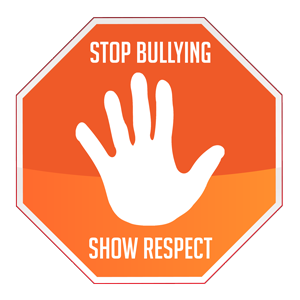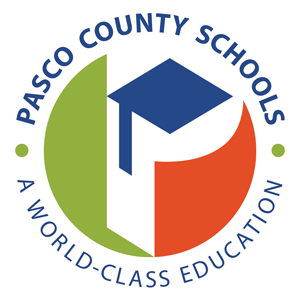Welcome to the Transition Resources Home Page
On this page you will find information around:
- Graduation Information for Students with Disabilities
- Deferral of Receipt of Standard Dipolma
- Information on Programs and Services for Students with Disabilities
- Required Agencies Information
- Provision of Information and Instruction Regarding Transfer of Rights at Age 18
- Transition Information Guide - Loacted at the bottom of the site
Transition is the process that facilitates the move throughout school to postsecondary adult living. To facilitate quality planning for a successful transition to post-secondary education and career opportunities for students with disabilities, requires a student’s Individual Education Plan (IEP) team to begin the planning process and IEP development when the student is in grade 7 or when the student attains the age of 12, whichever occurs first.
This law requires the IEP team to identify the student’s need for transition services in order to create meaningful postsecondary goals and career goals before the student enters high school or attains the age of 14, whichever occurs first. The student’s IEP must be operational and in place for implementation on the first day of the student’s first year of high school.
This process becomes formalized in school as part of the student’s Individualized Education Program (IEP). The student’s needs, interests and preferences must be incorporated into the planning and students are strongly encouraged to attend and participate in their IEP meetings.
The full collaboration of the student, family, educators and community service providers is needed for a successful transition. The planning process helps to ensure that all students participate in making decisions related to areas of education, medical, employment, social, and daily living needs.
The is a highly recommended resource for students and families to download and review to better understand the transition process. The is also highly recommended for the parents of middle school aged children.
Information from FLDOE for Students with Disabilities
The following link contains information on Graduation Requirements, Diploma Options, Scholar Diploma Designation, Industry Scholar Diploma Designation, minimum requirements for the State University System, Florida College System, Career and Technical Colleges and Centers, and more provided by the FDOE.
Please use the following link to access the Florida Department of Education (FLDOE) website on graduation requirements.
Graduation Brochures for Students entering 9th grade prior to 23-24 school year
Graduation Brochures for Students entering 9th grade in the 23-24 school year and thereafter
Students with disabilities may be eligible to defer receipt of the standard high school diploma and continue to receive services through public education. The deadline for deferment is May 15th of the year the student is expected to graduate. A student with a disability may defer the receipt of a standard high school diploma and continue to receive services if he or she meets the following requirements:
-
The individual educational plan (IEP) includes special education, transition planning, transition services, or related services through age 21; and
2. The student is enrolled in:
a. accelerated college credit instruction pursuant to §1007.27, F.S.
b. industry certification courses that lead to college credit,
c. a collegiate high school program
d. courses necessary to satisfy the Scholar designation requirements, or
e. a structured work-study, internship, or pre-apprenticeship program.
Special Note: A majority of students with disabilities will graduate and proceed directly into employment, technical college, universities, or the military. Some students may require minimal post-school support from the agency providers listed on the following page, thereby not necessitating deferral.
Information on ÃÛÌÒ´«Ã½ Programs and Services for Students with Disabilities
High school-level transition services, career and technical education, collegiate programs are available to students with disabilities through ÃÛÌÒ´«Ã½.
: ÃÛÌÒ´«Ã½ offer a wide range of Career, Technical and Adult Education courses that allow students to pursue career pathways that lead to industry certifications. After graduation, CTE students may enter the workforce or pursue post-secondary degrees.
Dual enrollment is an acceleration program that allows students to take postsecondary coursework and simultaneously earn credit toward a high school diploma, a career certificate, an industry certification or an associate or baccalaureate degree aa Florida public or eligible private postsecondary institution.
International Baccalaureate: The International Baccalaureate® (IB) offers a continuum of international education. The program encourages both personal and academic achievement, challenging students to excel in their studies and in their personal development. The program aims to develop students who have excellent breadth and depth of knowledge – students who flourish physically, intellectually, emotionally, and ethically. IB World School students develop strong academic, social, and emotional characteristics.
Cambridge Programme: The Cambridge curriculum and assessments are designed with the five Cambridge attributes in mind: confident, responsible, reflective, innovative, and engaged. The Advanced International Certificate of Education (AICE) is an innovative and accelerated method of academic study offered solely through the University of Cambridge International Examinations (CIE), a division of the University of Cambridge in Cambridge, England — an institution consistently ranked as one of the top five academic universities in the world.
Structured Work Study, Internship & Pre-Apprenticeship Programs: The Transition Education Program (TEP), or Extended Transition Program, provides individualized transition programming and services to students 18-22 years of age who meet eligibility requirements and defer receipt of their high school diploma for a structured work-study, internship or pre-apprenticeship program.
The TEP program is individualized, student focused and may offer instruction in self-advocacy, self-determination, adult living, employability skills, travel training, community-based instruction, functional communication and social skills.
TEP courses offered may include on and off campus On-the-Job Training (OJT) in non-paid work training experiences, participation in a school-based enterprise, Career Preparation, Career Experience, Career Placement and Preparation for Adult Living.
Information on Required Agencies
During transition planning for students with disabilities starting in grade 7 or when the student attains the age of 12, whichever occurs first, it is required by law that information be provided on the five state and area agencies below.
(VR): All students with an IEP or 504 that are 14 years of age and older qualify for Pre-Employment Transition Services through Vocational Rehabilitation. These services are available and are provided outside of school hours. Families may refer themselves directly to the local VR office or ask their case managers for assistance. See below for contact information.
New Port Richey Office:
7701 Little Road, Suite 210
New Port Richey, 34654
Phone: 727-484-1430
Fax: 727-841-0938
Dade City Office:
36739 County Road 52
Suite 101
Dade City, 33525
Phone: 352-834-6021
Fax: 352-521-1224
(FCSUA): Students with intellectual disabilities that have met requirements for graduation and are exiting the K-12 system by accepting their diploma, ending deferment or aging out, can apply to a Florida Post-Secondary Comprehensive Transition Program to receive opportunities for college experiences that lead to employment opportunities. There are several programs throughout the state of Florida. Click on the link to find a Florida Post-Secondary Comprehensive Transition Program.
(APD): All persons that have been diagnosed with severely impaired autism, cerebral palsy, spina bifida, intellectual disabilities, down syndrome, Prader-Willi syndrome, Phelan-McDermid syndrome or children age 3-5 who are at a high risk of a developmental disability and their families may qualify to receive supports and services to reach their full potential.
(DBS): All persons who are blind or visually impaired can be referred for services so that they can obtain the tools, supports and opportunities needed for success.
(DACIL): All persons with disabilities can self-refer to receive services and activities designed to assist them in achieving and maintaining an independent lifestyle.
Provision of Information and Instruction Regarding Transfer of Rights at Age 18
Information and instruction pertaining to legal rights and responsibilities that transfer to all students at age 18 and options that include, but are not limited to power of attorney, guardian advocacy, and guardianship that permit parent(s)/guardian(s) continued participation in the education decision making process please reference the Considering Age of Majority, Transfer of Rights and Decision-Making Options Document
General Resources:
Postsecondary Education and Training Schools:
(College options for students with Intellectual Disabilities)
Scholarship Information:
(Comparative college information)
Listing of 500,000 private sector awards)
(Scholarship search and information)
(3/31/2024)


